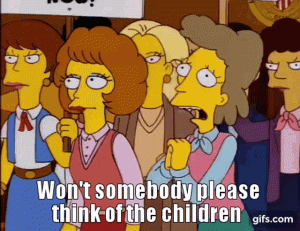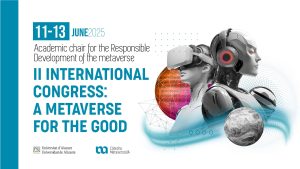
The MetaverseUA Chair Newsletter #14 - December 2024
Hey there, Metaversian friends!
Here we are again, with your favourite newsletter from the MetaverseUA Chair! Just in time for Christmas, it’s the perfect read for a cozy break by the fireplace, paired with a cup of hot chocolate—or perhaps a glass of wine, we’ll leave up that to you!
But, in any case, buckle up ‘cause here we go:
Commission Approves Technical Standards for Cross-Border European Digital Identity Wallet (eID)
The European Commission has taken a significant step towards the digital future by adopting technical standards for the implementation of the so-called cross-border European Digital Identity Wallets (eID), a move that promises to revolutionize how citizens and businesses interact with public and private services across the EU. The digital wallets will act as a universal, secure, and trusted way to verify identity, access services, and manage digital documents like mobile driving licenses or educational credentials—all conveniently accessible via mobile phones. Privacy is at the core of this initiative, with users able to share only the information they consent to, ensuring a high level of personal data protection.
The five implementing regulations set out uniform standards, specifications and procedures for the technical functions of the wallets, such as the data formats required for cross-border use of digital documents and measures to ensure the reliability and security of the wallets, as well as specifications and procedures to create a robust framework for the certification of eID wallets. A privacy dashboard, providing full transparency on how and to whom wallet information is shared, will also be built in.
The European digital identity wallet is more than just a convenience- it represents a leap forward in creating a trusted, privacy-focused digital ecosystem across Europe. So, from the MetaverseUA Chair, we’ll do our very best to keep you updated on any exciting developments in this space. And in the meantime, feel free to explore our Research Papers, some of which specifically address decentralized digital identity in the Metaverse.
Welcome to the future (?)
AEPD publishes technical note on blockchain and the right to erasure
In a related development, the Spanish Data Protection Agency (AEPD) has released a technical note exploring the intersection of blockchain technology and the right to erasure under article 17 of the GDPR. This document presents a proof of concept showcasing the feasibility of designing a blockchain infrastructure that aligns with the requirements of the GDPR, demonstrating how innovation can coexist with robust data protection standards.
The technical note outlines the fundamentals of blockchain infrastructure, explaining key concepts from a data protection standpoint. It examines real-world scenarios involving changes to implementation and governance management typical of such infrastructures. The document also delves into the principles and measures—both organizational and technical—required to implement the right to erasure within blockchain systems. Additionally, it provides a detailed analysis of the components of a widely used blockchain infrastructure, applying these insights to the practical deletion of user activity, including data associated with smart contracts.
While earlier studies have examined methods for managing data deletion in blockchain systems, this analysis proves compliance and creativity can go hand in hand, setting a new standard for privacy-focused blockchain design and offering a clear roadmap for the future.
The AEPD asserting its authority
The new Product Liability Directive published
On November 18, 2024, the EU unveiled the revamped Product Liability Directive (PLD), set to take effect on December 9, 2024, marking a major milestone in consumer protection and technology regulation. This updated directive modernizes liability rules to include cutting-edge technologies like AI systems, harmonizing laws across the EU and fostering innovation by offering businesses much-needed legal certainty.
The PLD introduces sweeping changes that tip the scales in favor of consumers. It broadens the definition of «product» to include software and expands «damage» to cover psychological harm, ensuring more comprehensive compensation for claimants. The directive also increases accountability across the supply chain, bringing intermediaries like online platforms under its scope. To make claims easier, it introduces rebuttable presumptions for defect and causation, reduces the burden of proof, and requires Member States to adopt measures like disclosure obligations and extended time limits for hidden defects.
Crucially, the PLD works in tandem with the AI Act, creating a robust framework for managing risks and securing rights. While the AI Act sets safety and transparency standards to prevent harm, the PLD ensures consumers have a clear path to compensation when things go wrong. Together, they represent a bold step into the future of tech governance and consumer rights.
Certainly, the worst out of all defective products
Tik Tok is getting into trouble…
Indeed, it seems like TikTok has a busy holiday season ahead.
To begin with, the European Commission has sent a request to TikTok to provide more information on its efforts to mitigate risks of misinformation and manipulation during the ongoing Romanian elections. The request includes details on the platform’s recommender system and public data accessibility for third-party scrutiny. TikTok has been asked to detail how it addresses inauthentic or automated misuse of its platform and the risks posed by its recommendation algorithms.
And on the other side of the pond, particularly in the US, a federal appeal court upheld Congress’ position, describing the so-called anti-TikTok law as a conscientiously crafted response to national security concerns about the app’s alleged links to the Chinese government -a claim consistently denied by TikTok and its parent company, ByteDance.
Despite this setback, the platform, which boasts 170 million users in the US, plans to appeal to the Supreme Court, arguing that the law violates constitutional rights to free speech. Another layer of complexity is the election of Donald Trump. The President-elect, after winning 2024, has suggested that he may repeal the ban when he takes office in January 2025. However, experts warn that such a move could face significant obstacles, as anti-China sentiment is deeply entrenched in Congress, making it difficult to reverse the ban.
Whether you love it or hate it, the future of TikTok promises to be one of the most fascinating technology battles of the decade. And, as always, the drama is at hand.
Live from Tik Tok’s offices
Google Steps into the Future with Android XR: A Game-Changer (?) for Smart Glasses and Headsets
Google has announced Android XR, a cutting-edge operating system designed to power the next generation of extended reality (XR) devices, including smart glasses and mixed-reality headsets. Developed in partnership with Samsung and Qualcomm, Android XR promises to seamlessly blend digital and physical worlds. With AI-powered experiences integrated into apps like Google Maps, Photos, and YouTube, this innovative platform is set to redefine how users interact with the world around them.
The excitement doesn’t stop there—Android XR will debut on Samsung’s upcoming mixed-reality headset, Project Moohan, expected to launch in 2025. Powered by Google’s advanced Gemini AI, the headset will deliver hyper-immersive experiences with natural language interactions and contextual awareness. As the XR space heats up, Android XR positions itself as a bold rival to Apple’s Vision Pro, signaling a thrilling new chapter in wearable tech innovation.
Definitely easier than learning Korean
Australian social media bans for children
Australia is making waves with plans to introduce the world’s strictest social media policy: a ban on users under 16. While aimed at shielding young users from online harm, the proposal sparks debate about the delicate balance between safety, privacy, and access in the digital age. Critics warn that enforcing such a ban could mean intrusive ID checks or biometric scans, raising privacy concerns and excluding kids without official identification.
A more innovative solution could be a “child flag” system, where device operating systems create a trusted signal for underage accounts. This flag would alert apps and websites to restrict age-inappropriate content, empowering parents to manage their child’s online experience without compromising privacy. The debate underscores the growing need for smarter, more nuanced solutions to protect young people online.
Live from Australia
EU Prepares for Virtual Worlds Regulatory Sandboxes: Pilot Programs on the Horizon
The European Commission is stepping boldly into virtual worlds, with regulatory sandboxes taking center stage in its strategy to tackle legal and technical challenges while sparking innovation. By Q2 2024, the Commission plans to encourage Member States to roll out these experimental spaces, with the first pilot sandbox set to launch in early 2026. Portugal is leading the charge, leveraging its cutting-edge regulatory framework and «Technological Free Zones» to host one of the initial projects.
These sandboxes are designed to address pressing issues like IP rights, data sharing, interoperability, digital identity, privacy, and security. They will also tackle challenges tied to protecting minors, curbing harmful content, reducing environmental impact, and improving connectivity. Early pilots will prioritize IP, data sharing, and privacy—key foundations for innovation in virtual environments. The Commission is also working closely with the Council of the EU to align member states on this transformative agenda, setting the stage for a robust and innovative virtual ecosystem.
Please, DO try this at home
Ctrl+Alt+Goodbye!
And that is a wrap on the latest edition of this our beloved newsletter. Whether you’re celebrating Christmas amidst snow and frost or under sunny palm trees, the Metaverse team sends you our warmest wishes for a joyful holiday season! Merry Christmas to our wonderful readers, and here’s to a bright and exciting New Year 2025. We look forward to reconnecting with you soon!













